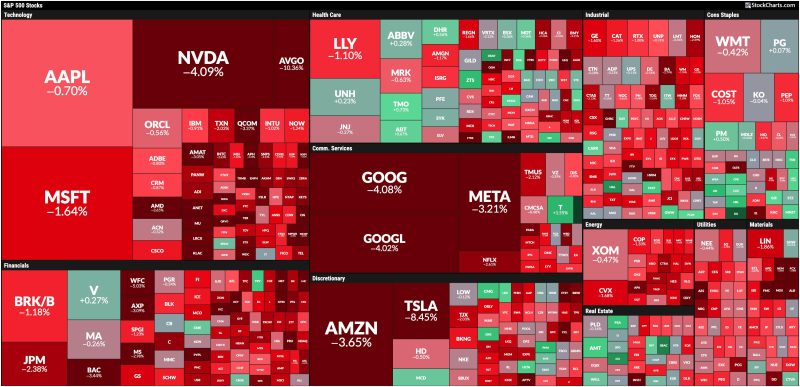Broad-Based Stock Market Selloff: How to Position Your Portfolio
Understanding the Dynamics of a Broad-Based Stock Market Selloff
A broad-based stock market selloff can be a daunting event for investors, as it typically results in a significant drop in the prices of various stocks across different sectors and indexes. Such selloffs can be triggered by a variety of factors, including economic indicators, geopolitical tensions, market sentiment, and unexpected events like natural disasters or pandemics. When faced with a broad-based selloff, it is crucial for investors to understand the dynamics at play and take appropriate steps to protect their portfolios.
Diversification Is Key in Times of Uncertainty
One of the most important strategies for weathering a broad-based stock market selloff is diversification. By spreading your investments across different asset classes, sectors, and regions, you can reduce the risk of being heavily impacted by a selloff in any one area. Diversification is like having a safety net for your portfolio, allowing you to mitigate potential losses during turbulent market conditions.
During a broad-based selloff, some sectors may be hit harder than others. By having a diversified portfolio, you can cushion the impact of declines in any single sector. This approach not only helps manage risk but also provides opportunities for gains in sectors that may perform well even during a market downturn.
Evaluate Your Risk Tolerance and Time Horizon
Another essential consideration during a broad-based stock market selloff is to reassess your risk tolerance and investment time horizon. Market downturns can be emotionally taxing, leading some investors to make hasty decisions based on fear rather than a well-thought-out strategy. Understanding your risk tolerance can help you stay the course during turbulent times and avoid panic selling.
Additionally, consider your investment time horizon when making decisions during a selloff. Investors with longer time horizons may have the luxury of riding out market fluctuations, while those with shorter horizons may need to reassess their investment goals and adjust their portfolios accordingly.
Seek Opportunities Amidst the Volatility
While a broad-based stock market selloff can be challenging, it also presents opportunities for savvy investors. During market downturns, certain stocks or sectors may be undervalued, providing attractive buying opportunities for long-term investors. By keeping a watchful eye on the market and conducting thorough research, you may be able to identify high-quality companies trading at discounted prices.
Moreover, consider dollar-cost averaging as a strategy to gradually invest funds into the market over time, rather than making lump-sum investments. This approach can help reduce the impact of market volatility on your portfolio and potentially maximize returns over the long run.
Stay Informed and Stay Calm
In times of market uncertainty, it is crucial to stay informed and stay calm. Keeping abreast of market developments, economic trends, and geopolitical events can help you make informed decisions about your investments. Additionally, maintaining a long-term perspective and avoiding knee-jerk reactions to short-term market fluctuations can be beneficial in preserving your portfolio’s value.
Remember that market selloffs are a natural part of the investing cycle and are often followed by periods of recovery and growth. By staying disciplined, diversified, and focused on your long-term goals, you can position your portfolio to weather the storm and emerge stronger on the other side.
In conclusion, a broad-based stock market selloff can test the resilience of even the most seasoned investors. By understanding the dynamics at play, diversifying your portfolio, reassessing your risk tolerance and time horizon, seeking opportunities amidst the volatility, and staying informed and calm, you can position your portfolio to navigate turbulent market conditions successfully. Ultimately, staying focused on your long-term investment objectives and maintaining a disciplined approach to investing can help you ride out the storm and capitalize on opportunities for growth in the future.

